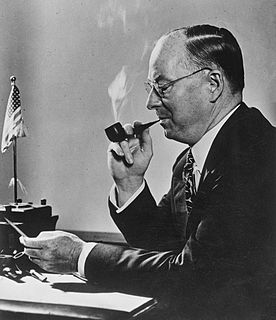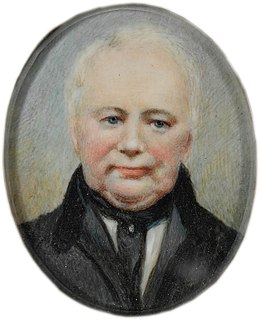A Quote by Marcus Vitruvius Pollio
Economy denotes the the proper management of materials and of site, as well as a thrifty balancing of cost and common sense in the construction of works. ...the architect does not demand things which cannot be found or made ready without great expense. For example: it is not everywhere that there is plenty of pitsand, rubble, fir, clear fir, and marble... Where there is no pitsand, we must use the kinds washed up by rivers or by the sea... and other problems we must solve in similar ways.
Quote Topics
Architect
Balancing
Cannot
Clear
Common
Common Sense
Construction
Cost
Demand
Does
Economy
Everywhere
Example
Expense
For Example
Found
Great
Kinds
Made
Management
Marble
Materials
Must
Other
Plenty
Problems
Proper
Ready
Rivers
Rubble
Sea
Sense
Similar
Site
Solve
Things
Thrifty
Up
Use
Washed
Ways
Well
Which
Without
Works
Related Quotes
You must be respectful and assenting, but without being servile and abject. You must be frank, but without indiscretion, and close, without being costive. You must keep up dignity of character, without the least pride of birth, or rank. You must be gay, within all the bounds of decency and respect; and grave, without the affectation of wisdom, which does not become the age of twenty. You must be essentially secret, without being dark and mysterious. You must be firm, and even bold, but with great seeming modesty.
We must drop the idea that change comes slowly. It does ordinarily - in part because we think it does. Today changes must come fast; and we must adjust our mental habits, so that we can accept comfortably the idea of stopping one thing and beginning another overnight. We must discard the idea that past routine, past ways of doing things, are probably the best ways. On the contrary, we must assume that there is probably a better way to do almost everything. We must stop assuming that a thing which has never been done before probably cannot be done at all.
The common sense of the word (navy) as we use it today refers to a permanent fighting service made up of ships designed for war, manned by professionals and supported by an adminsistrative and technical infrastructure. A navy in this sense is only one possible method of making war at sea, and by some way the most difficult and the most recent. There have in the past been, and to some extent still are, many other ways of generating sea power.
After we have thought out everything carefully in advance and have sought and found without prejudice the most plausible plan, we must not be ready to abandon it at the slightest provocation. should this certainty be lacking, we must tell ourselves that nothing is accomplished in warfare without daring; that the nature of war certainly does not let us see at all times where we are going; that what is probable will always be probable though at the moment it may not seem so; and finally, that we cannot be readily ruined by a single error, if we have made reasonable preparations.
For a Man cannot believe a Miracle without relying upon Sense, nor Transubstantiation without renouncing it. So that never were any two things so ill coupled together as the Doctrine of Christianity and that of Transubstantiation, because they draw several ways, and are ready to strangle one another: For the main Evidence of the Christian Doctrine, which is Miracles, is resolved into the certainty of Sense, but this Evidence is clear and point blank against Transubstantiation.
To be worthy of the name, an experimenter must be at once theorist and practitioner. While he must completely master the art of establishing experimental facts, which are the materials of science, he must also clearly understand the scientific principles which guide his reasoning through the varied experimental study of natural phenomena. We cannot separate these two things: head and hand. An able hand, without a head to direct it, is a blind tool; the head is powerless without its executive hand.
... store of bees, in a dry and warme bee-house, comely made of fir boards, to sing, and sit, and feede upon your flowers and sprouts, make a pleasant noyse and sight. For cleanly and innocent bees, of all other things, love and become, and thrive in your orchard. If they thrive (as they must needs if your gardiner be skilfull, and love them: for they love their friends and hate none
but their enemies) they will besides the pleasure, yeeld great profit, to pay him his wages; yea the increase of twenty stock of stools with other bees, will keep your orchard.
One cannot demand of a scholar that he show himself a scholar everywhere in society, but the whole tenor of his behavior must none the less betray the thinker, he must always be instructive, his way of judging a thing must even in the smallest matters be such that people can see what it will amount to when, quietly and self-collected, he puts this power to scholarly use.
If any occupation or association is found to hinder our communion with God or our enjoyment of spiritual things, then it must be abandoned. Anything in my habits or ways which mars happy fellowship with the brethren or robs me of power in service, is to be unsparingly judged and made an end of-'burned.' Whatever I cannot do for God's glory must be avoided.
[Social legislation] raised the cost of production; and what can be more illogical than to raise the cost of production in the country and then to allow the products of other countries which are not surrounded by any similar legislation, which are free from any similar cost and expenditure freely to enter our country in competition with our own goods...If these foreign goods come in cheaper, one of two things must follow...either you will take lower wages or you will lose your work.


































